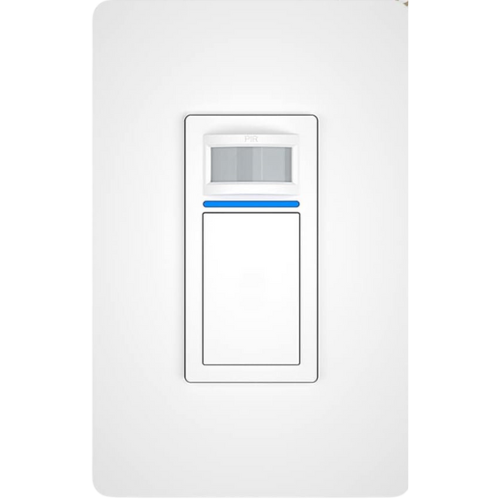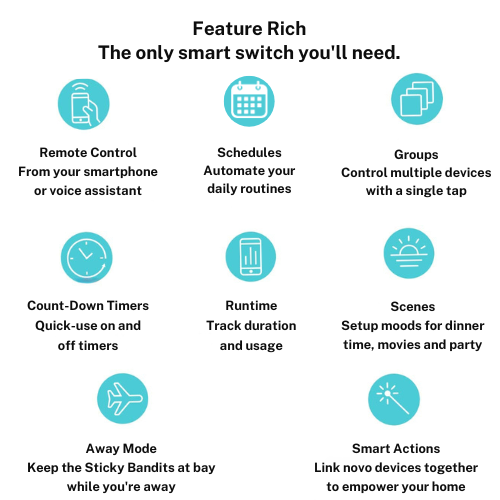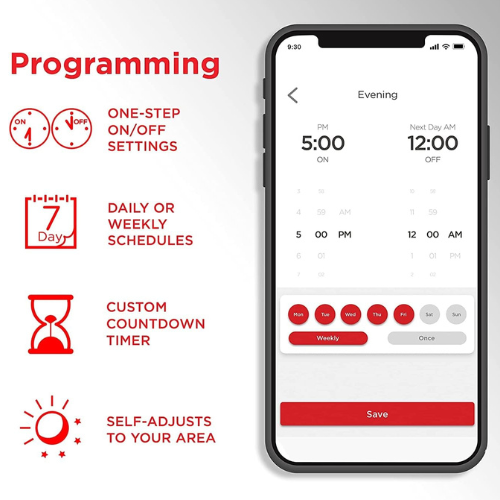Smart Lighting
Smart lighting is a game-changer when it comes to home accessibility, especially for individuals with physical impairments or limited mobility in the context of home healthcare, caregiver support, and independent living. Smart light bulbs or light switches can be controlled through smartphones, voice-commands, or even schedules and automations, eliminating the need for individuals to physically reach and operate their light switches.
The primary advantage of smart lighting is that it allows individuals to control their lights with automations and voice commands. They can turn lights on or off with simple voice commands or a tap on their smart device. Additionally, lights can be set to turn on when another device detects motion or when a door opens, and then turn off automatically when the door is closed, or when motion is no longer detected.
There are two primary options for integrating smart lighting into a home: smart light switches and smart light bulbs. Smart light switches replace existing switches and allow for controlling all the lights connected to that switch. On the other hand, smart light bulbs are ordinary bulbs that can be installed in any existing light fixture and controlled individually. With smart light bulbs, the main disadvantage is that you cannot physically turn off the light switch, because that cuts the power to the bulb. Instead, you have to control the bulb only from voice commands, schedules, or a smartphone.
The benefits of smart lighting for individuals in home healthcare, caregiver support, and independent living situations can be summarized as follows:
- Enhanced Independence: With remote and voice-control capabilities, individuals can independently control their lights without relying on physical assistance from caregivers.
- Flexibility and Customization: Smart lighting allows users to easily customize settings, such as scheduling lights to turn on and off automatically or adjusting brightness to their preferred level, enabling them to maintain greater control over their living environment.
- Improved Safety: Smart lighting eliminates the need to navigate in the dark, reducing the risk of accidents or falls when entering or exiting a room, which is particularly important for individuals with limited mobility or physical impairments.
- Energy Efficiency: With set automations and schedules, smart lighting minimizes energy consumption by automatically turning off lights when not in use, helping to reduce costs and promote sustainability.
By incorporating smart lighting into the home healthcare and independent living ecosystem, individuals can enjoy enhanced accessibility, greater control over their environment, and improved overall quality of life, while also providing caregivers with valuable tools to support their clients’ needs and foster their independence.
Interested in learning more about how we can help support aging in place and accessibility in the home? Schedule a free consultation with our team to discuss your specific needs and goals.



